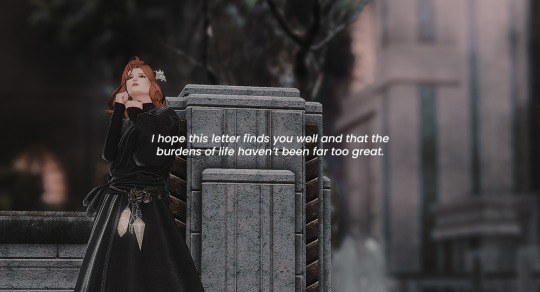#important news letter
Explore tagged Tumblr posts
Text
Tag list!
aini spooky month - aini’s tag!
aini answers - answer tag!
anonymous diner guests - anon tag!
diner guests - non anon tag!
mod talks - me talking!
important news letter - important tag
spooky style - art in the spooky Month style
mod’s art style - art in my style!
#aini spooky month#aini answers#anonymous diner guests#diner guests#mod talks#important news letter#spooky style#mod’s art style
0 notes
Text
Tag list!
eka velseb - the eka tag!
eka answers - eka answering!
anonymous fashion lovers - anon tag!
fashion lovers - non anon tag!
mod talks - me talking!
important news letter - important tag
spooky style - art in the spooky month style
mod’s art style - art in my style!
#eka velseb#eka answers#anonymous fashion lovers#fashion lovers#mod talks#important news letter#spooky style#mod’s art style
1 note
·
View note
Text
what draws you back to your country what draws you back to your land when i was a kid i told myself if i ever left iran i'd never go back 2 years into living in the UK i started looking at news on iran again 10 years in and i visited it for the first time again and today i heard an iranian mother talk in farsi to her child on the train to london the way my mother used to and i wanted to cry i wanted to ask her whether they're still cutting the mountaintops whether the lakes are still drying today i showed the person i was with pictures of waterfalls and palaces and forests and snow-white north something odd pulls me back with increasing force i can't ignore it ever again
#i just dont know how else to tell you everything !!! santoor from a different room the large family gathering the black tea with saffron#drank out of delicate glass and gold vessels cold marble on hot nights big stars big rivers big mountains#visible from busy tehran roads the ease of conversation tension eased by sarcasm tall tall cliffsides you drive by#rushing to put on headscarves before the head teacher comes in a rave by the base of damavand massive sun pastel purple skies#disjunct architecture trucks on road sides with fresh fruits pomegranates watermelons oranges everywhere#the smell of golpar on tangerines beautiful girls in tehran holding hands bautiful boys in kermanshah speaking kurdish the janky#cars on the verge of breakdown held together by love caspian sea lighting up in spring staying up into the morning on noruz#my friends uncle sang and played setar his son played the violin a little fear a lot of love remnants of something#grand carved into the cliffside everything feels bigger taller the landscape swallows you it smells like#illegally imported wine and orange blossoms and auntie's tahchin soaking your eyes in warm tea when youre sick#tomatoes and salt concrete and stone something mandmade and something raw new flag old resilience#the anger getting to us bruised eyes big grin all i know is the north i feel sorry my mother asks if id be okay#if they got a place in tajikistan we love each other enough dont we? when we look in the mirror we see each other. theres a love letter#across the border and it says I MISS YOU IM GLAD YOURE DOING BETTER itll never be the same im not okay with it at all there are no more#stars i miss jumping over big fires i miss our fireworks im sorry we cant be happy anymore everyone#leaves the mint and rosewater and sunlight for a reason.#it's not pride it's just generational regret
136 notes
·
View notes
Note
i just got wuwa too and im too lazy to change my language so i just play with the sound off lol.. why are the english voices so unlistenable??? especially yangyang?????
oh i wasn’t complaining about the eng voice acting actually, but about the game defaulting to the german translation jshsh
that being said, i did switch to the jp voice acting while changing the text settings, just bc i play genshin and honkai in japanese too and i want to try that first; though i didn’t notice anything too wrong with eng (i also didn’t pay too much attention though so i‘ll have to switch back and compare if i keep playing it)
also it’s important to not direct any dislike of a game’s voice acting at the actors directly, we never know what kind of directions they got
#┊✩彡 divine correspondence ♡#┊✩彡 unsigned letter ♡#that being said#i have been loading into the game for the last 20 minutes#i don’t think i can actually play this game until i get a new laptop#in genshin the jp va just makes paimon a lot more bearable + i like xiao’s and childe’s voices#(the most important thing jsjsh)#and in honkai there’s something about the eng va that just doesn’t sit well with me#it‘s the way lines are being delivered that feels off to me
45 notes
·
View notes
Text









the fall of icarus.
#ffxiv#ffxiv gpose#ffxiv screenshots#ffxiv oc#ffxiv wol#eva. pose#icarus. pose#i know this one is long#but icarus letter has been on my mind for a long time#and endwalker is like the worst expansion for eva#she goes through a lot#so this letter is really important to her#anyway idk if there are any spelling mistakes im tired fbrfrebg#but i cried making this bc it's important to me#the same way the convo with venat is important#this is my happy new year post fjshdns
68 notes
·
View notes
Text

Gabi the angel, they're new
#hehe#i made a new design#art#my art#oc#angel#doodle#sketch#original character#gabi#most of my characters have 4 letter name#they're a skinny angel#also it's one character#i just draw them in 2 different poses and outfits#gabi is important to my story#i had this character in mind for a long itme#they're the ones that brought the sword to all my drawings
267 notes
·
View notes
Text
"As for the government of the kingdom, [Edward V] had complete confidence in the peers of realm and the queen."
"According to the Crowland continuator, [Elizabeth Woodville] seems to have taken the king's place in listening to his council immediately after Edward IV's death. It does appear that she expected to have some role in her son's kingship, and the Crowland continuator’s report of the letters sent to her by [Richard of Gloucester] indicates that she had good reason to expect to be able to work with him and the other councillors: 'the duke of Gloucester wrote the most pleasant letters to console the queen; he promised to come and offer submission, fealty and all that was due from him to his lord and king, Edward V, the first-born son of his brother the dead king and the queen'."
"[However], in what was Gloucester's first coup, Edward V was separated from his household and Woodville advisors. When the young king questioned the move, Buckingham was reported to have told the boy 'It is not in the business of women but men to govern kingdoms'. The blunt remark referred to the authority of Elizabeth Woodville as queen and the power she must have anticipated within the new political climate left by Edward IV's sudden death [...] While the veracity of this scene is questionable*, the words attributed to the duke no doubt seemed plausible to Dominic Mancini who believed they exemplified the popular sentiment held by men [...]."
-Dominic Mancini, The Usurpation of Richard the Third / J.L. Laynesmith, The Last Medieval Queens: English Queenship 1445-1503 / Alexander R. Brondarbit, Power Brokers and the Yorkist State, 1461-1485
*One of Mancini's key sources seems to have been Edward V's own doctor, John Argentine, who attended to him in the Tower. It's very likely that he was the one who recounted this scene to Mancini, which suggests that it should probably be considered more credible than not.
#historicwomendaily#elizabeth woodville#wars of the roses#15th century#english history#my post#Croyland wrote that 'The counsellors of the king - now deceased - were present with the queen' so yes#He clearly seemed to view Elizabeth as taking on Edward's role after his death#Which is striking since her son - the new King - hadn't even arrived in London yet let alone be crowned#It's also interesting that Richard wrote letters to *her* rather than the rest of the council and that she was the final deciding authority#when it came to her son (she was the one who wrote to him for his military escort) - it's a clear indication of who was seen as important#This is also reflected in 16th century chronicles like the claim that the Archbishop of York gave Elizabeth the Great Seal#We don't know if this is true - the Archbishop was definitely opposed to Richard but More may have embellished or invented the story#But either way it reflects the perception that Elizabeth would have a major role in the realm's governance during her son's minority#Which makes sense as Edward V would have been used to his mother governing for him as part of his council his whole life#It's also interesting to compare the impression we get of Elizabeth's role with that of former kings' mothers in late medieval England#Because that can help us understand her activities (and perception of them) within proper context rather than purely in isolation#From what I understand kings' mothers could be very influential (eg: Joan of Kent) but were almost never visibly/directly associated#with the governance of the realm. It's striking that the most extreme and arguably the only exception - Isabella of France - assumed#her unofficial regent-like role only after literally deposing the former King aka her husband in the most atypical situation imaginable#So it's striking that Elizabeth *was* visibly and directly associated with it despite her situation being entirely standard; despite the#lack of precedents; and despite the physical absence of her son. Especially since she was effectively the king's mother for only 20 days#I do think it's possible to argue that it says something about her power as queen#(Edward *did* give her unusual positions of authority either way) and may also suggest a more direct personality on her part#It may also explain why historians were/are so readily prepared to believe that she wanted to 'usurp the sovereignty' to quote George Buck#Ofc this is my interpretation based on my (limited) knowledge - feel free to correct me
17 notes
·
View notes
Text
Just sent my little brother a youtube video depicting the new Until Dawn ending and now we are theorising like crazy and this is genuinely the most conversation we have had with each other in over a year.
When the original game came out, I was 12 and he was 8, and he's turning 18 next month and I haven't lived with him in over three years, and we've only spoken a handful of times since our dad died, but I so much as mention Until Dawn and now we're yapping away endlessly and this is SO IMPORTANT TO ME.
#god im having feelings#me and my brother sitting on the bed at my nans house as kids FAR too young to be playing that game#sharing the remote and playing alternate chapters#and yelling at each other for making stupid decisions#and him screaming at me when i sneeze during a dont move and kill sam#to me and my brother as teenagers in our dads new house#and me running into his bedroom after replaying the game for the millionth time while he listens to me complain about how difficult#the final sequence is#to me and my brother living in different countries#but i sent him a link to a youtube video at midnight#and within five minutes he replies in full capital letters theorising about the new epilogue with sam#and if the sequel will involve being able to go back to the mountain and save josh#AND MAKING PLANS TO SEE THE MOVIE WITH ME#until dawn you are such an important part of my life god bless#my first tumblr url way back in like 2016 was a until dawn reference wow#until dawn#until dawn remake
12 notes
·
View notes
Text
killer7 did something to my brain. you guys ever think of hand in killer7? i have so many thoughts, so many questions. forefront of my mind rn is what was kun lan’s taxi driver career in japan like.
#i have big contemplations like was emir around during the 90s when the rest of the smiths were being revived#CAUSE TAHTS WHEN THE PIGEON LETTERS AND HOLBERTS DEATH BY EMIR TOOK PLACE.#also not to mention mills saying 30 years ago you and harman-#whatever happened back then is not touched on in the game rather to show what happened at the union hotel#while its still very important to SOMETHING it seems. like mills was killed before he could tell garcian important#also what revamps the smith syndicate? the ones in killer7 are the second and that 1990 to 2000 gap still didnt turn them into a new one#while they turned into the 3rd smith syndicate after their deaths in 2011 from the big coburn fight#NOT TO MENTION THEY REFORMED IN 2053. THATS FORTYISH YEARS.#also the personae are assumed to still be around because in 2170 mask is still around with the 5th smith syndicate#maybe the coburn fight was an even more intense weakening than the 1990 fight and took a while for the smiths to reemerge?#also what ended the 3rd and 4th syndicates? who knows. whats garcians identity throughout these ones?#I HAVE SO MANY CONTEMPLATIONS. also taxicab driver kun lan.#i speak#killer7#kill the past
29 notes
·
View notes
Note
here's the clip with captions
https://twitter.com/thisisgnftrying/status/1668729137383481344?s=46&t=gyWINazF8KEjB7ilBIuiiQ
rly rly good stuff guys - full credit for video and captioning here
56 notes
·
View notes
Text

i can't get over cyno and tighnari talking about the cup thing with collei and saying it's a family tradition. they're literally married
#like. they confirmed that the 3 of them are a family 😭 it's so cute#also collei is doing so well 🥹🥹🥹🥹 my child. she's more confident more sociable doing so many new things#i remember when she barely knew how to read or write and now tighnari casually trusts her to send important letters in his place and it's so#mundane#everything about this entire quest felt so domestic#such precious relationships#i cannot#genshin impact
7 notes
·
View notes
Text
Hm. Ok so what could Lucrezia possibly offer these guys that'd be worth this much effort??

It seems they don't really need the whole mind-slave trick.
#girl genius#page react#it is good to know tho. Tactically important#tried a new thing with the lettering to see if it'd show up better on these very-white-skewed pages#Not sure I'll keep doing it that way seems like it made it harder to read#even if it does have marginally better contrast
18 notes
·
View notes
Note
what are your top 5 most romantic musical songs?
you don't even know, dear anon, how hard it is for me to answer hahaha i just realized that most of my favourite musical songs are not even love songs. but i will try my best!
no one else from the great comet - this is probably my favourite romantic musical song ever, but phillipa soo's version obviously (my wife, in case anyone forgot)
all i've ever known from hadestown - such an obvious choice tbh, but this song somehow always makes me cry so it has to be on that list
can you hear me? from new york, new york - i don't even know the context of this song which is so funny to me, but damn, i love this one so much i can't even explain (especially lin's demo but not only, i listen to both), like, would you ever be with a wreck like me? or could i ever be a part of the song inside your heart? ahhhhh...
bad idea from waitress - ok, look, i know it's not a love song but a song about cheating but i fucking love it & it has to be on this list cause i literally cannot think of anything else & i listen to this one A LOT, ok? i'm sorry hahaha
helpless from hamilton - i was trying to avoid this one but turns out i can't think of anything else lol i'm really sorry
#i just realized something very important anon#i think the reason i love musicals so much is that most of musical songs are about very specific situations & rarely about love#which is a nice distraction#cause let's be honest a typical pop song is usually about love or heartbreak or something like that#& i was so tired of it#just gimme a song about revolutionary war or dropping out of college or seeing a comet in the sky & thinking thoughts because of it#wow it's scary to think about tbh i think i may have issues#lol#thank you for the question tho i just learned something new about myself#anon#i saved every letter you wrote me*
8 notes
·
View notes
Text
we are here now..................
#letters from stephanie*#springsteen's new jersey reed's new york lila's naples. it's important.#Spotify
3 notes
·
View notes
Text
I think apologism is fun and sexy but sometimes you see people defend a character in a way that is not just wrong but antithetical to the character's actual motivations and moral framework like girl. Not even the guy you're defending thinks you're right. You are getting fired as his defense lawyer and sued for misrepresentation.
#this is like a companion piece to my 'he did none of that he did some other shit tho' post#yes he IS a poor lil meow meow. his actions WERE justified. not like that tho.#this is inspired by the nmj takes that are like 'jgy is so evil for killing him because nmj lifted him up from nothing'#when the one time meng yao says he owes a debt to nmj he reacts to that by storming in and promptly trying to help him get a new job#'you think you owe me?? fuck you. here's a recommendation letter'#it is also. obviously. about hawks.#not even gonna explain that one. you know who you are.#and much more pettily it was also inspired by the twitter thread i just saw saying xue yang wiped out baixue temple#because- get ready#'song lan was an abuser (for whipping him) and he probably thought they taught him to be abusive'#and he 'spared' song lan by blinding him 'because he already fell in love with xingchen and couldn't k*ll someone xingchen cared about'#it's very important to me that you know the word kill was censored. crucial to the vibe of the whole thread#complaining and whining about fandom
22 notes
·
View notes
Text
Queen Margaret (of Anjou) had written to the Common Council in November when the news of the Duke of York's coup was proclaimed. The letter from the queen was published in modernised English by M.A.E. Wood in 1846, and she dated it to February 1461 because of its opening sentence: ‘And whereas the late Duke of N [York]...." However the rest of the letter, and that of the prince, is in the present tense and clearly indicates that the Duke of York is still alive. The reference to the ‘late duke’ is not to his demise but to the attainder of 1459 when he was stripped of his titles as well as of his lands. If the queen’s letter dates to November 1460, and not February 1461, it make perfect sense. Margaret declared the Duke of York had ‘upon an untrue pretense, feigned a title to my lord’s crown’ and in so doing had broken his oath of fealty. She thanked the Londoners for their loyalty in rejecting his claim. She knew of the rumours, that we and my lords sayd sone and owrs shuld newly drawe toward yow with an vnsome [uncounted] powere of strangars, disposed to robbe and to dispoyle yow of yowr goods and havours, we will that ye knowe for certeyne that . . . . [y]e, nor none of yow, shalbe robbed, dispoyled nor wronged by any parson that at that tyme we or owr sayd sone shalbe accompanied with She entrusted the king's person to the care of the citizens ‘so that thrwghe malice of his sayde enemye he be no more trowbled vexed ne jeoparded.’ In other words the queen was well informed in November 1460 of the propaganda in London concerning the threat posed by a Lancastrian military challenge to the illegal Yorkist proceedings. Margaret assured the Common Council that no harm would come to the citizenry or to their property. Because the letter was initially misdated, it has been assumed that the queen wrote it after she realised the harm her marauding troops were doing to her cause, and to lull London into a false sense of security. This is not the case, and it is a typical example of historians accepting without question Margaret’s character as depicted in Yorkist propaganda. Margaret’s letter was a true statement of her intentions but it made no impact at the time and has made none since. How many people heard of it? The Yorkist council under the Earl of Warwick, in collusion with the Common Council of the city, was in an ideal position to suppress any wide dissemination of the letter, or of its content.
... When Margaret joined the Lancastrian lords it is unlikely that she had Scottish troops with her. It is possible that Jasper Tudor, Earl of Pembroke, sent men from Wales but there was no compelling reason why he should, he needed all the forces at his disposal to face Edward Earl of March, now Duke of York following his father’s death at Wakefield, who, in fact, defeated Pembroke at Mortimer’s Cross on 2 February just as the Lancastrian army was marching south. The oft repeated statement that the Lancastrian army was composed of a motley array of Scots, Welsh, other foreigners (French by implication, for it had not been forgotten that René of Anjou, Queen Margaret’s father, had served with the French forces in Nomandy when the English were expelled from the duchy, nor that King Charles VII was her uncle) as well as northern men is based on a single chronicle, the Brief Notes written mainly in Latin in the monastery of Ely, and ending in 1470. It is a compilation of gossip and rumour, some of it wildly inaccurate, but including information not found in any other contemporary source, which accounts for the credence accorded to it. The Dukes of Somerset and Exeter and the Earl of Devon brought men from the south and west. The Earl of Northumberland was not solely reliant on his northern estates; as Lord Poynings he had extensive holdings in the south. The northerners were tenants and retainers of Northumberland, Clifford, Dacre, the Westmorland Nevilles, and Fitzhugh, and accustomed to the discipline of border defence. The continuator of Gregory’s Chronicle, probably our best witness, is emphatic that the second battle of St Albans was won by the ‘howseholde men and feyd men.” Camp followers and auxiliaries of undesirables there undoubtedly were, as there are on the fringes of any army, but the motley rabble the queen is supposed to have loosed on peaceful England owes more to the imagination of Yorkist propagandists than to the actual composition of the Lancastrian army.
... Two differing accounts of the Lancastrian march on London are generally accepted. One is that a large army, moving down the Great North Road, was made up of such disparate and unruly elements that the queen and her commanders were powerless to control it.” Alternatively, Queen Margaret did not wish to curb her army, but encouraged it to ravage all lands south of the Trent, either from sheet spite or because it was the only way she could pay her troops.” Many epithets have been applied to the queen, few of them complimentary, but no one has as yet called her stupid. It would have been an act of crass stupidity wilfully to encourage her forces to loot the very land she was trying to restore to an acceptance of Lancastrian rule, with her son as heir to the throne. On reaching St Albans, so the story goes, the Lancastrian army suddenly became a disciplined force which, by a series of complicated manoeuvres, including a night march and a flank attack, won the second battle of St Albans, even though the Yorkists were commanded by the redoubtable Earl of Warwick. The explanation offered is that the rabble element, loaded down with plunder, had descended before the battle and only the household men remained. Then the rabble reappeared, and London was threatened. To avert a sack of the city the queen decided to withdraw the army, either on her own initiative or urged by the peace-loving King Henry; as it departed it pillaged the Abbey of St Albans, with the king and queen in residence, and retired north, plundering as it went. Nevertheless, it was sufficiently intact a month later to meet and nearly defeat the Yorkist forces at Towton, the bloodiest and hardest fought battle of the civil war thus far. The ‘facts’ as stated make little sense, because they are seen through the distorting glass of Yorkist propaganda.
The ravages allegedly committed by the Lancastrian army are extensively documented in the chronicles, written after the event and under a Yorkist king. They are strong on rhetoric but short on detail. The two accounts most often quoted are by the Croyland Chronicle and Abbott Whethamstede. There is no doubting the note of genuine hysterical fear in both. The inhabitants of the abbey of Crowland were thoroughly frightened by what they believed would happen as the Lancastrians swept south. ‘What do you suppose must have been our fears . . . [w]hen every day rumours of this sad nature were reaching our ears.’ Especially alarming was the threat to church property. The northern men ‘irreverently rushed, in their unbridled and frantic rage into churches . . . [a]nd most nefariously plundered them.’ If anyone resisted ‘they cruelly slaughtered them in the very churches or churchyards.’ People sought shelter for themselves and their goods in the abbey,“ but there is not a single report of refugees seeking succour in the wake of the passage of the army after their homes had been burned and their possessions stolen. The Lancastrians were looting, according to the Crowland Chronicle, on a front thirty miles wide ‘like so many locusts.“ Why, then, did they come within six miles but bypass Crowland? The account as a whole makes it obvious that it was written considerably later than the events it so graphically describes.
The claim that Stamford was subject to a sack from which it did not recover is based on the Tudor antiquary John Leland. His attribution of the damage is speculation; by the time he wrote stories of Lancastrian ravages were well established, but outside living memory. His statement was embellished by the romantic historian Francis Peck in the early eighteenth century. Peck gives a spirited account of Wakefield and the Lancastrian march, influenced by Tudor as well as Yorkist historiography. … As late as 12 February when Warwick moved his troops to St Albans it is claimed that he did not know the whereabouts of the Lancastrians, an odd lack of military intelligence about an army that was supposed to be leaving havoc in its wake. The Lancastrians apparently swerved to the west after passing Royston which has puzzled military historians because they accept that it came down the Great North Road, but on the evidence we have it is impossible to affirm this. If it came from York via Grantham, Leicester, Market Harborough, Northampton and Stony Stratford to Dunstable, where the first engagement took place, there was no necessity to make an inexplicable swerve westwards because its line of march brought it to Dunstable and then to St Albans. The Lancastrians defeated Warwick’s army on 17 February 1461 and Warwick fled the field. In an echo of Wakefield there is a suggestion of treachery. An English Chronicle tells the story of one Thomas Lovelace, a captain of Kent in the Yorkist ranks, who also appears in Waurin. Lovelace, it is claimed, was captured at Wakefield and promised Queen Margaret that he would join Warwick and then betray and desert him, in return for his freedom.
Lt. Colonel Bume, in a rare spirit of chivalry, credits Margaret with the tactical plan that won the victory, although only because it was so unorthodox that it must have been devised by a woman. But there is no evidence that Margaret had any military flair, let alone experience. A more likely candidate is the veteran captain Andrew Trolloppe who served with Warwick when the latter was Captain of Calais, but he refused to fight under the Yorkist banner against his king at Ludford in 1459 when Warwick brought over a contingent of Calais men to defy King Henry in the field. It was Trolloppe’s ‘desertion’ at Ludford, it is claimed, that forced the Yorkists to flee. The most objective and detailed account of the battle of St Albans is by the unknown continuator of Gregory’s Chronicle. The chronicle ends in 1469 and by that time it was safe to criticise Warwick, who was then out of favour. The continuator was a London citizen who may have fought in the Yorkist ranks. He had an interest in military matters and recorded the gathering of the Lancastrian army at Hull, before Wakefield, and the detail that the troops wore the Prince of Wales’ colours and ostrich feathers on their livery together with the insignia of their lords. He had heard the rumours of a large ill-disciplined army, but because he saw only the household men he concluded that the northerners ran away before the battle. Abbot Whethamstede wrote a longer though far less circumstantial account, in which he carefully made no mention of the Earl of Warwick. … Margaret of Anjou had won the battle but she proceeded to lose the war. London lay open to her and she made a fatal political blunder in retreating from St Albans instead of taking possession of the capital.' Although mistaken, her reasons for doing so were cogent. The focus of contemporary accounts is the threat to London from the Lancastrian army. This is repeated in all the standard histories, and even those who credit Margaret with deliberately turning away from London do so for the wrong reasons.
... The uncertainties and delays, as well as the hostility of some citizens, served to reinforce Margaret’s belief that entry to London could be dangerous. It was not what London had to fear from her but what she had to fear from London that made her hesitate. Had she made a show of riding in state into the city with her husband and son in a colourful procession she might have accomplished a Lancastrian restoration, but Margaret had never courted popularity with the Londoners, as Warwick had, and she had kept the court away from the capital for several years in the late 1450s, a move that was naturally resented. Warwick’s propaganda had tarnished her image, associating her irrevocably with the dreaded northern men. There was also the danger that if Warwick and Edward of March reached London with a substantial force she could be trapped inside a hostile city, and she cannot have doubted that once she and Prince Edward were taken prisoner the Lancastrian dynasty would come to an end. Understandably, at the critical moment, Margaret lost her nerve. ... Queen Margaret did not march south in 1461 in order to take possession of London, but to recover the person of the king. She underestimated the importance of the capital to her cause." Although she had attempted to establish the court away from London, the Yorkist lords did not oppose her for taking the government out of the capital, but for excluding them from participation in it. Nevertheless London became the natural and lucrative base for the Yorkists, of which they took full advantage. The author of the Annales was in no doubt that it was Margaret’s failure to enter London that ensured the doom of the Lancastrian dynasty. A view shared, of course, by the continuator of Gregory’s Chronicle, a devoted Londoner:
He that had Londyn for sake Wolde no more to hem take The king, queen and prince had been in residence at the Abbey of St Albans since the Lancastrian victory. Abbot Whethamstede, at his most obscure, conveys a strong impression that St Albans was devastated because the Lancastrian leaders, including Queen Margaret, encouraged plundering south of the Trent in lieu of wages. There must have been some pillaging by an army which had been kept in a state of uncertainty for a week, but whether it was as widespread or as devastating as the good abbot, and later chroniclers, assert is by no means certain. Whethamstede is so admirably obtuse that his rhetoric confuses both the chronology and the facts. So convoluted and uncircumstantial is his account that the eighteenth century historian of the abbey, the Reverend Peter Newcome, was trapped into saying: ‘These followers of the Earl of March were looked on as monsters in barbarity.’ He is echoed by Antonia Gransden who has ‘the conflict between the southemers of Henry’s army and the nonherners of Edward’s. The abbey was not pillaged, but Whethamstede blackened Queen Margaret’s reputation by a vague accusation that she appropriated one of the abbey’s valuable possessions before leaving for the north. This is quite likely, not in a spirit of plunder or avarice, but as a contribution to the Lancastrian war effort, just as she had extorted, or so he later claimed, a loan from the prior of Durham earlier in the year. The majority of the chroniclers content themselves with the laconic statement that the queen and her army withdrew to the north, they are more concerned to record in rapturous detail the reception of Edward IV by ‘his’ people. An English Chronicle, hostile to the last, reports that the Lancastrian army plundered its way north as remorselessly as it had on its journey south. One can only assume that it took a different route. The Lancastrian march ended where it began, in the city of York. Edward of March had himself proclaimed King Edward IV in the capital the queen had abandoned, and advanced north to win the battle of Towton on 29 March. The bid to unseat the government of the Yorkist lords had failed, and that failure brought a new dynasty into being. The Duke of York was dead, but his son was King of England whilst King Henry, Queen Margaret and Prince Edward sought shelter at the Scottish court. The Lancastrian march on London had vindicated its stated purpose, to recover the person of the king so that the crown would not continue to be a pawn in the hands of rebels and traitors, but ultimately it had failed because the Lancastrian leaders, including Queen Margaret, simply did not envisage that Edward of March would have the courage or the capacity to declare himself king. Edward IV had all the attributes that King Henry (and Queen Margaret) lacked: he was young, ruthless, charming, and the best general of his day; and in the end he out-thought as well as out-manoeuvred them.
It cannot be argued that no damage was done by the Lancastrian army. It was mid-winter, when supplies of any kind would have been short, so pillaging, petty theft, and unpaid foraging were inevitable. It kept the field for over a month and, and, as it stayed longest at Dunstable and in the environs of St Albans, both towns suffered from its presence. But the army did not indulge in systematic devastation of the countryside, either on its own account or at the behest of the queen. Nor did it contain contingents of England’s enemies, the Scots and the French, as claimed by Yorkist propaganda. Other armies were on the march that winter: a large Yorkist force moved from London to Towton and back again. There are no records of damage done by it, but equally, it cannot be claimed that there was none.
-B.M Cron, "Margaret of Anjou and the Lancastrian March on London, 1461"
#*The best propaganda narratives always contain an element of truth but it's important to remember that it's never the WHOLE truth#margaret of anjou#15th century#english history#my post#(please ignore my rambling tags below lmao)#imo the bottom line is: they were fighting a war and war is a scourge that is inevitably complicated and messy and unfortunate#arguing that NOTHING happened (on either side but especially the Lancastrians considering they were cut off from London's supplies)#is not a sustainable claim. However: Yorkist propaganda was blatantly propaganda and I wish that it's recognized more than it currently is#also I had *no idea* that her letter seems to have been actually written in 1460! I wish that was discussed more#& I wish Cron's speculation that Margaret may have feared being trapped in a hostile city with an approaching army was discussed more too#tho I don't 100% agree with article's concluding paragraph. 'Edward IV did not ultimately save England from further civil war' he...did???#the Yorkist-Lancastrian civil war that began in the 1450s ended in 1471 and his 12-year reign after that was by and large peaceful#(tho Cron may he talking about the period in between 61-71? but the civil war was still ongoing; the Lancasters were still at large#and the opposing king and prince were still alive. Edward by himself can hardly be blamed for the civil war continuing lol)#but in any case after 1471 the war WAS believed to have ended for good and he WAS believed to have established a new dynasty#the conflict of 1483 was really not connected to the events of the 1450s-1471. it was an entirely new thing altogether#obviously he shouldn't be viewed as the grand undoubted rightful savior of England the way Yorkist propaganda sought to portray him#(and this goes for ALL other monarchs in English history and history in general) but I don't want to diminish his achievements either#However I definitely agree that the prevalent idea that the Lancasters wouldn't have been able to restore royal authority if they'd won#is very strange. its an alternate future that we can't possibly know the answer to so it's frustrating that people seem to assume the worst#I guess the reasons are probably 1) the Lancasters ultimately lost and it's the winners who write history#(the Ricardians are somehow the exception but they're evidently interested in romantic revisionism rather than actual history so 🤷🏻♀️)#and 2) their complicated former reign even before 1454. Ig put together I can see where the skepticism comes from tho I don't really agree#but then again the Yorkists themselves played a huge role in the chaos of the 1450s. if a faction like that was finally out of the way#(which they WOULD be if the Lancasters won in 1461) the Lancastrian dynasty would have been firmly restored and#Henry and Margaret would've probably had more space and time to restore royal authority without direct rival challenges#I'd argue that the Lancasters stood a significantly better chance at restoring & securing their dynasty if they won here rather than 1471#also once again: the analyses written on Margaret's queenship; her role in the WotR; and the propaganda against her are all phenomenal#and far far superior than the analyses on any other historical woman of that time - so props to her absolutely fantastic historians
21 notes
·
View notes